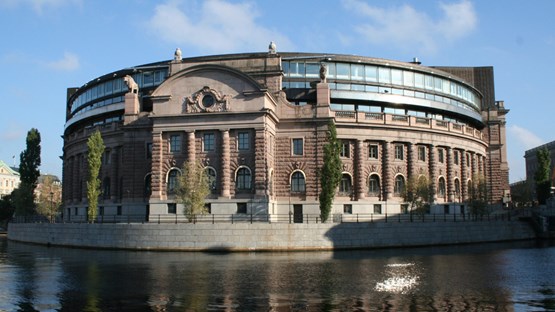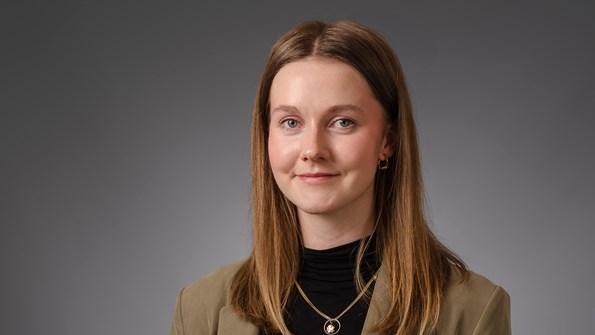Research group The central research question is how representative democracy at national and European levels responds to contemporary challenges.

Person lägger sin röst till kommunfullmäktige
ImageMostphotosThe profile's representatives focus in their studies on the central institutions and actors of representative democracy in Sweden and Europe and beyond. How does representative democracy at national and supranational levels meet the challenges of our time?
Of particular interest to us are general elections and the struggle for government power at the national level, as well as democracy in Sweden and the European Union (EU). The political parties are key players in representative democracy, and the challenges they face are a topic that unites the representatives of the profile. At the national level, this concerns the parties as opinion leaders and government members, legislators, and policymakers. Within the EU, there are questions concerning how the political parties and representative democracy can function within the multilevel government that includes both national and EU levels.
The research leader for the profile is Professor Torbjörn Bergman. His research is particularly focused on the struggle for government power and the issue of democracy at two interconnected levels, Sweden and the EU. Bergman has created a large data archive that includes information about all democratic governments in Europe's stable parliamentary democracies since World War II. There is unique data in this archive that is not found anywhere else. Together with Johan Hellström, he runs the infrastructure project REPDEM based on this research, which in turn is part of DEMSCORE, a national initiative for data on democracy, politics and conflict.
Associate Professor Magnus Blomgren wrote his dissertation on political parties and their representatives in the EU. What the emerging multilevel government means for democracy has continued to be Blomgren's main interest. In this context, he has also published internationally on politicians' role perceptions and theories about them. Blomgren is widely employed as a commentator and lecturer on themes concerning the EU, parties and democracy.
Docent Johan Hellström’s research focuses on political parties, governments and democratic representation in parliamentary democracies. Together with Torbjörn Bergman, he runs the infrastructure project REPDEM, which updates and expands existing databases at Umeå University on key actors of representative democracy: voters, political parties, parliaments and governments.
Associate Professor Abrak Saati wrote her dissertation on public participation in constitution-building processes, focusing empirically on post-conflict states. The study included an analysis of 48 cases and Saati has continued to work comparatively in her research activities; comparing and analysing how religious political parties and secular political parties engage with each other during constitutional negotiations; comparing how states’ sequence their constitutional processes, and more. Since 2020, Saati is working in a research project with professor Torbjörn Bergman. The project “Large Lessons from Small Cases: Façade or Democracy in Kiribati, Vanuatu and São Tomé and Príncipe?” seeks to understand the political dynamics and the political realities of small insular states.
Senior Lecturer Pēteris Timofejevs’ research interests include political processes in the EU and Baltic Sea Area, in particular the Baltic States. His latest publications revolve around the foreign policy positions of radical right parties and the transnational networks of radical right youth organizations in the Baltic States. Previously, Timofejevs has also researched shaming and naming in international politics. He is responsible for the Master's program in political science.
Ph.D. students in our profile
Kalle Eriksson is interested in the theoretical and practical nexus between technology and democracy, as well as different issues related to the Future as a political arena. His dissertation aims to explore the ways in which Swedish political parties understand and relate to automation, and what implications this has for the politicization and de-politicization of emerging and future technologies. Apart from his PhD studies, Kalle is a member of the editorial board of Fronesis, a Swedish journal for social and political theory.
Jonas Lindahl is interested in the strategic action of political parties and coalition theory, and in particular how changes in European party systems interact with the life cycles of coalition governments. His dissertation is focused on three parallel and related developments in European parliamentary democracies’ party systems—increased parliamentary fragmentation, multidimensional conflict structures, and patterns of ideological polarization—affect political parties’ strategic action in relation to government formation and coalition governance.
Evelina Lundgren is interested in the theoretical debate concerning how the membership of the European Union (EU) affects and has affected the political actors of a member state. Within the scope of her dissertation work, she explores what is happening in a member state when a new policy is presented by the EU. In doing this, she takes a closer look at how the political parties handle EU legislation, and whether the current system for processing EU legislation in Sweden presents any challenges for the parties in their work with EU issues.
Elsa Karlsson Gustafsson is interested in the political opposition’s role and function in domestic EU politics. Her dissertation project delves into how opposition to policy proposals originating from the EU level manifests and is expressed within the national parliament This exploration is facilitated by a comparative approach, allowing Elsa to examine the role as well as the functions of opposition within three distinct national parliaments.
Research assistant
Lilian Teles is a Master’s student interested in the impacts of national energy policies in the context of green transitions. Employing a gender lens, her research will examine the decision-making processes and the dynamics among governmental bodies, marginalised communities, and other stakeholders as they shape and respond to renewable energy policies.

See publications from the researchers within Representative Democracy.

The blog "On Power and Politics – Swedish politics in a comparative perspective".

A day at work of Elsa Karlsson Gustafsson